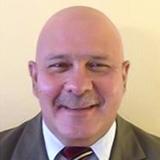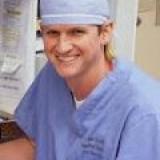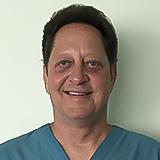Use this section if you are an unlimited member of PerfusionEducation.com
Unlimited Members please fallow this link :
https://mediweb.regfox.com/adult-ecmo-specialist-coursedec2024
The “Full Program” is designed to prepare the learner for the ELSO Adult ECMO Certification Exam. Following completion of the course, it is the learner’s responsibility to ensure they have sufficient bedside ECMO monitoring hours for eligibility to sit for the ELSO Adult ECMO Specialist exam. The “Full Program” is limited to 16 participants. Participants are required to be present and visible, via the participants’ webcam through Zoom. Learners are required to participate in post-lecture discussions.
Full Program participants must sign up and attend both sections (didactic and simulation) at the scheduled time. Participants are required to actively participate and pass a written post-program exam to be eligible to receive a certificate of course completion. The passing score is 80%. The exam is given at the end of the simulation sessions and will cover the didactic and simulation sections.
It is required to attend the simulation portion of the course that is associated with the didactic portion when you register. Date substitutions are not permitted. “Please see schedule for details”.
Once 16 participants have registered, the course will be closed. You may add your email to our waitlist to be first in line for notification of our next scheduled course. Please see “this link” for the current number of open positions available.
Refund policy: No refunds will be processed except for verified emergencies and will be at the discretion of the course organizers.
This program is approved for 38.8 Category 1 CEU by the ABCP.
| Objectives | Content | Time | Teaching Methods |
| Introductions | Introductions, course instructions, expectations, learning objectives/goals, review of schedule | 0800-0830 | |
| Discussion of anticoagulation on ECMO | Anticoagulation while on ECMO, heparin, DTI’s, monitoring, blood transfusions, complications | 0830-0930 | Lecture/discussion, AV’s, question/answer |
| Discussion of effects of ECMO on medications | Pharmacokinetics, Medications while on ECMO, sequestration, dosing strategies, clearance. | 0930-1030 | Lecture/discussion, AV’s, question/answer |
| Discussion of ECMO overview | Overview of ECMO, history of ECMO, current and future trends in application | 1030-1130 | Lecture/discussion, AV’s, question/answer |
| Discussion on the ECMO circuit | Description of the ECMO circuit including all components, principles of design and cannulas | 1130-1230 | Lecture/discussion, AV’s, question/answer |
| LUNCH | 1230-1300 | ||
| Review of gas exchange, O2 supply vs demand | Physiology of native lung gas exchange, o2 supply vs demand, gas exchange in membrane, determinants of function | 1300-1400 | Lecture/discussion, AV’s, question/answer |
| Discussion of respiratory failure, ARDs | Respiratory failure overview, ARDs definition and Berlin criteria, VV ECMO criteria, goals of VV ECMO | 1400-1500 | Lecture/discussion, AV’s, question/answer |
| Explore approaches to patient management on VV ECMO | Patient management on VV ECMO, sedation, mobility, resting ventilation, fluid management | 1500-1600 | Lecture/discussion, AV’s, question/answer |
| Discuss circuit management in VV ECMO | Circuit management of VV ECMO, blood flow, gas flow, recirculation, weaning | 1600-1700 | Lecture/discussion, AV’s, question/answer |
|
Total 8 hours | 480 minutes |
| Objectives | Content | Time | Teaching Methods |
| Explore how to monitor circuit pressures | Circuit monitoring, circuit pressures and abnormalities, complete circuit check, temperature management | 0800-0900 | Lecture/discussion, AV’s, Question/answer |
| Explore canulation techniques | Canulation techniques, VV configurations, VA configurations, special configurations | 0900-1000 | Lecture/discussion, AV’s, question/answer |
| Discussion of cardiac pathologies and ECMO | Cardiac pathologies that lead to ECMO, criteria for ECMO support, pre/post operative ECMO, contraindications | 1000-1100 | Lecture/discussion, AV’s, question/answer |
| Discussion on initiating ECMO | Initiation of ECMO, priming, patient preparation, initials settings, procedures on ECMO | 1100-1200 | Lecture/discussion, AV’s, question/answer |
| Exploration of circuit emergencies | Overview of circuit emergencies; air embolus, thrombus, limb ischemia, drainage insufficiency | 1200-1300 | Lecture/discussion, AV’s, question/answer |
| LUNCH | 1300-1330 | ||
| Overview of VA ECMO Management | VA ECMO management, native heart resting, monitoring, complications, circuit operatiuon, weaning. | 1330-1430 | Lecture/discussion, AV’s, question/answer |
| Discussion on ECPR and transport | ECPR management, patient selection, team roles, canulation techniques, post arrest care, ethical considerations, transportation on ECMO | 1430-1530 | Lecture/discussion, AV’s, question/answer |
| Discussion on CRRT in-line with ECMO | CRRT in-line with ECMO circuit, management, incidence, pressure abnormalities, outcomes | 1530-1630 | Lecture/discussion, AV’s, question/answer |
| Exploration of patient emergencies on ECMO | Patient emergencies on ECMO, bleeding/ICH, cardiac arrest, hemothorax, pneumothorax, pericardial effusion, coagulopathy | 1630-1730 | Lecture/discussion, AV’s, question/answer |
| Total 9 hours | 540 minutes |
| Objectives | Content | Time | Teaching Methods |
| Live simulation of drainage insufficiency | Active participant simulation scenario of drainage insufficiency | 0900-1100 | Hands-on role play simulations, AV’s, Question/answer |
| Live simulation scenario recirculation | Active participant simulation of recirculation scenario | 1100-1300 | Hands-on role play simulations, AV’s, Question/answer |
| LUNCH | 1300-1330 | ||
| Live simulation scenario thrombus | Active participant simulation of thrombus scenario | 1330-1500 | Hands-on role play simulations, AV’s, Question/answer |
| Live simulation scenario cardiac arrest | Active participant simulation of cardiac arrest scenario | 1500-1700 | Hands-on role play simulations, AV’s, Question/answer |
| Total 7.5 hours | 450 minutes |
| Objectives | Content | Time | Teaching Methods |
| Live simulation of drainage Air entrainment | Active participant simulation of air entrainment scenario | 0800-1000 | Hands-on role play simulations, AV’s, Question/answer |
| Live simulation scenario Oxygenator failure | Active participant simulation of oxygenator failure scenario | 1000-1200 | Hands-on role play simulations, AV’s, Question/answer |
| LUNCH | 1200-1230 | ||
| Live simulation scenario pump failure | Active participant simulation of pump failure scenario | 1230-1400 | Hands-on role play simulations, AV’s, Question/answer |
| Live simulation scenario hypoxia | Active participant simulation of hypoxia on VA ECMO scenario | 1400-1600 | Hands-on role play simulations, AV’s, Question/answer |
| EXAM didactic/simulation | 1600-1730 | ||
| Total 7.5 hours | 450 minutes |
More Information https://mediweb.us/adult-ecmo-specialist-course/

Joseph has been a practicing clinical perfusionist for 40 years. Joseph is the CEO of Houston Extracorporeal Technologies and is the program director of The New Orleans Conference

Dr. Mark Mettauer, MD is a cardiac surgery specialist in The Woodlands, TX and has been practicing for 25 years. He specializes in cardiac surgery and thoracic surgery

CV ICU Clinical Coordinator Memorial Hermann The Woodlands The Woodlands, TX

Micheal Ray Brown, CCP, LP, is a graduate of The Texas Heart School of Perfusion Technology. He has been a perfusionist for 38 years in and around the city of Houston

Vickie Carlyle has been in critical care for over 10 years. She received her Bachelor of Science in Nursing from University of Texas Health Science Center at Houston, Cizik School of Nursing